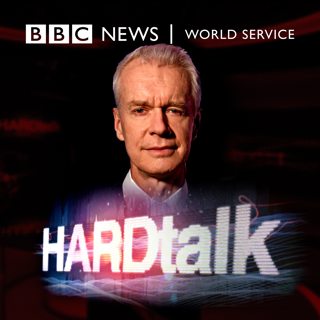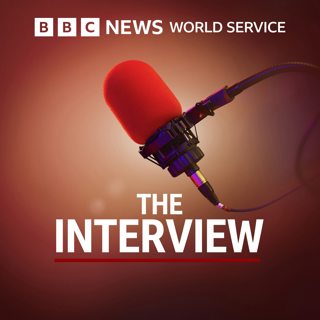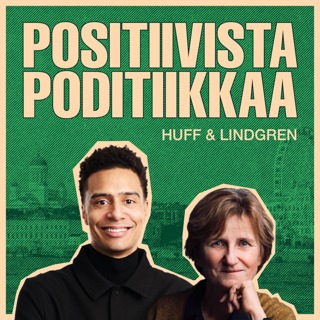
Artist Jeremy Deller
Artist Jeremy Deller defies all the labels and categories of the art world. He is a visual artist who can’t paint, can’t draw and professes no great technical skill - yet he is widely regarded as one of the most important artists in Britain today. He uses images, objects, words and real people to present a portrait of the modern world, from the factory floor to the Iraq war. What is at the heart of his creative vision?
20 Joulu 201323min

Chairman and CEO of Total- Christophe de Margerie
Hardtalk is in Monte Carlo at the World Policy Conference, an international gathering of politicians and business leaders from across the world. Stephen Sackur speaks to one of France’s most influential and outspoken CEOs, Christophe de Margerie, head of the energy giant Total. Does Europe have what it takes to meet the triple challenge of economic competitiveness, climate change and energy security?
18 Joulu 201323min

Douglas Alexander – Labour Chief Foreign Policy Spokesman
Under Tony Blair's leadership the world grew used to a British Labour government that was the United States’ staunchest ally in a series of military interventions. But with the Blair era long gone and the party preparing for an election battle in 2015 has Labour's world view changed? Hardtalk speaks to Labour's Chief Foreign Policy Spokesman Douglas Alexander. Does Labour have a compelling vision of Britain’s role in the international arena?
16 Joulu 201323min

Director General, Organisation for the Prohibition of Chemical Weapons - Ahmet Üzümcü
When the Nobel Committee awarded this year’s Peace Prize to the Organisation for the Prohibition of Chemical Weapons (OPCW), its staff was on the ground in Syria overseeing the removal and destruction of the country’s chemical weapons. Sarah Montague travelled to Oslo to speak to the Director General of the OPCW, Ahmet Üzümcü as he collected the prize. Does the work of his organisation mean peace is more likely in Syria?
13 Joulu 201323min

South African Rugby Team Captain, 1993 - 1996: Francois Pienaar
Francois Pienaar was captain of the South African rugby team when it won the World Cup in 1995. Before the game Nelson Mandela walked into the stadium in Johannesburg wearing the Springbok rugby jersey, which was once seen as a symbol of white minority rule. It came to be viewed as a defining moment for the emerging ‘Rainbow Nation’. Francois Pienaar went on to develop a friendship with Nelson Mandela. George Alagiah asks him whether the hope and optimism generated that day is still alive today.(Photo: Springbok captain Francois Pienaar (R) receives the Rugby World Cup from President Nelson Mandela at Ellis Park, Johannesburg, June 1995. Credit: AFP/Getty Images)
11 Joulu 201323min

Republican Senator, Florida - Marco Rubio
Viewed from across the Atlantic, American politics is a mess. A stand-off between Congressional Republicans and President Obama temporarily shut down the federal government. Healthcare reform is a battleground and immigration reform is blocked. Hardtalk speaks to Florida Senator, Marco Rubio. He is widely seen as a Republican contender for the White House in 2016. Do the Republicans have what it takes to win a national election?(Photo: Senator Marco Rubio, Republican Florida, speaks at the 2013 Values Voter Summit. Credit: Getty Images)
9 Joulu 201323min

Martin Schulz
For the last few years the EU has been under enormous strain. Amid the bail outs, austerity and rising unemployment some Europeans have come to see the EU as part of the problem, not the solution. HARDtalk speaks to Martin Schulz, the President of the European Parliament. He'€™s one of Europe'€™s most powerful advocates of more integration, but is he out of tune with Europe'€™s mood?
6 Joulu 201323min

EU Employment and Social Affairs Commissioner - Laszlo Andor
Is the stability and unity of the European Union threatened by internal migration? Over the past decade millions of people from the accession countries of Eastern Europe have taken advantage of the EU's integrated economic space to live and work in the union's richer countries. But now there are signs of a political backlash, not least here in Britain. Hardtalk speaks to the EU commissioner for Employment and Social Affairs, Laszlo Andor. Has Europe's freedom of movement gone too far?(Photo: Laszlo Andor, EU commissioner for Employment, Social Affairs and Inclusion. Credit: AFP/Getty Images)
2 Joulu 201323min






















